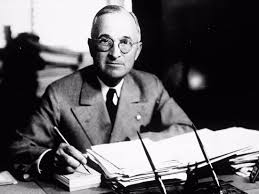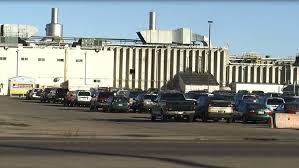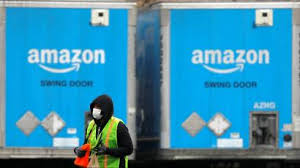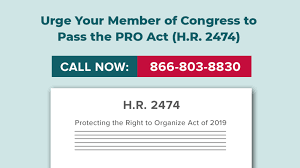
Last week, President Donald Trump signed an executive order shielding meatpacking firms like Tyson from legal liability over COVID-19. Trump’s order was based on the Defense Production Act (DPA).
Seeing the forest from the trees
From a legal perspective, the order is unenforceable. But getting bogged down in the legal weeds misses an important point about the order. The President of the United States has stated that packinghouses are immune from liability under the law for COVID-19 exposure. Regardless of the legal technicalities, that statement will likely discourage workers from filing workers’ compensation claims against meatpackers. I also fear managers of those plants will use the order as an excuse to shift the cost of COVID-19 exposures onto enhanced unemployment or short-term disability policies if workers file those claims.
Executive orders and Youngstown Sheet and Tube
Federal courts have held that the Defense Production Act does not immunize corporations from tort claims. Furthermore, in order to invoke the Defense Production Act, it would appear a company needs to be performing an actual government contract. The DPA fails to shield companies that are just producing their product for the private market.
But even if the DPA applies to meatpackers during the COVID-19 pandemic, the President has limited powers under the DPA. In 1952, President Harry Truman tried to use the DPA to force steel production during the Korean War. In Youngstown Sheet and Tube v. Sawyer, the Supreme Court held that since Congress had not specifically authorized such an order that Truman’s order was unconstitutional. Cheap meat during a pandemic is hardly the national security crisis that a shortage of steel during a major war.
Legally, this executive order immunizing packinghouses from COVID-19 claims should be filed in a recycling can. But corporate America is already planning to immunize itself from litigation from COVID-19 in a way that could be enforceable. I also believe these efforts will be aimed at workers’ compensation.
Federal legislation and COVID-19 immunity
The legal problems with Trump’s order on immunizing meatpacking plants under the DPA is the lack of Congressional authority. However, the Senate is proposing legislation that would prevent consumers and employees from suing corporations for exposure to COVID-19
Opponents of this legislation, point out, like I have earlier, that suits against businesses for COVID-19 are hard to prove. Opponents of the legislation also argue like I have earlier, that workers’ compensation already limits the liability of corporations for COVID-19 exposure from their employees.
My guess is that many readers of this blog possess some expertise in the workers’ compensation and workplace law general. I can imagine those readers saying something a long the lines of “Even if McConnell’s federal tort reform plan gets past Nancy Pelosi, there is no way it would apply to workers’ compensation. Workers’ compensation is a state issue.”
I believe this argument amounts to wishful thinking.
The 10th Amendment and workers’ compensation
Most workers compensation lawyers would argue that that two propositions would prevent Congress from giving federal immunity to employers under state workers’ compensation laws for COVID-19 exposure. One, workers’ compensation laws are enacted under 10th Amendment police powers. Workers’ compensation is also a law regulating insurance. State law generally governs insurance under the McCarran-Ferguson Act.
But federal and state courts have questioned the applicability of state workers’ compensation laws in regulating air ambulance charges. In technical legal jargon, state workers’ compensation laws have been mostly preempted by federal law on air ambulance charges because regulation of air ambulances is a matter of federal law. I believe the air ambulance charge cases could persuade courts that federal immunity for COVID-19 litigation would apply to workers’ compensation cases.
The 10th Amendment and state quarantine orders
The 10th Amendment is also the constitutional authority state governors and local officials rely upon for stay at home orders. President Trump has attacked some Governors for invoking that authority to impose quarantine or shelter in place order.
But more importantly, Attorney General William Barr has stated the Department of Justice will question state laws related to COVID-19 that unduly inhibit national commerce. Barr seems to be reviving the concept of the “dormant commerce clause”. Federal courts used the dormant commerce clause to overturn state laws regulating the workplace in the Lochner era.
I believe corporate America and their political allies will use federal legislation to undercut state workers’ compensation laws. Advocates fro injured workers should stay vigilant during this crisis.







